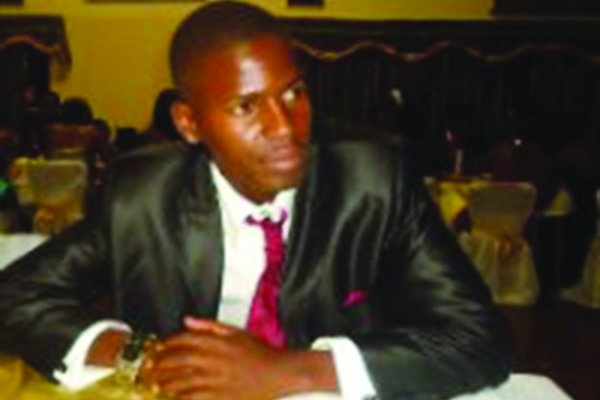
The Gokwe community has largely been neglected by the government, even under the so called new dispensation era. The government has obviously abandoned all the rural folks though claiming to be getting the bulk of their support from the country side. Gokwe stands to be one of the top examples.
By Roy Muroyi
Gokwe-Mapfungautsi is a hot and dry area that has been fully exploited by the migrant communities that came mostly from Masvingo province. A livelihood of the majority of the residents is cotton growing. The main challenges in this area are lack of government financial support, infertile lands, lack of roads network and climate change.
The farming community of Gokwe has long been abused by politicians, who only bring minimal developments during the run up to elections. A trend has been set, where Zanu PF candidates splash unaccounted for money to the youths during the run up election time, in a bid to buy votes with an empty or false election promise. Gokwe has seen heavyweights such as Flora Buka, Justice Mayor Wadyajena and many more misrepresenting the people in Parliament and using the people to gain political mileage and abandoning the community once elected.
The appearance of these political charlatans and hypocrites during election time and their disappearance after elections has been a trend that has led to the continuous deterioration of the area. This has led to many unaddressed issues and the underdevelopment of the area.
This particular election phase has not been different. In Gokwe-Kana, President Emmerson Mnangagwa’s hand right man, Owen Ncube, a well-known godfather of gold panning in Kwekwe, was caught live on camera buying votes using hard cash that ordinary citizens are not getting from the bank. Wadyajena is also buying the hearts of many in his constituency Gokwe-Nembudziya.
In Gokwe-Mapfungautsi, Zanu PF has strategically invested highly on this circus of “election time development”. It is rather coincidental that these developmental projects are only starting a few months before elections, possibly to pour water on the wounds of failures induced on the people over the past thirty something years by the likes of Lovemore Mpukuta.
The Zanu PF roller coaster continues, as it is all roses for community members and during the run up to elections and doom for the next five years. Different candidates come with no election manifesto whatsoever only to disappear after the election.
- Chamisa under fire over US$120K donation
- Mavhunga puts DeMbare into Chibuku quarterfinals
- Pension funds bet on Cabora Bassa oilfields
- Councils defy govt fire tender directive
Keep Reading
Cotton farming has been the priority for the bulk of farmers in Gokwe, though in some areas maize farming dominates. Cotton production has always been very high in Gokwe, until recent years when the government reduced the selling price for cotton by an unimaginable percentage.
Perhaps some may blame the hyper inflation, which was largely brought by the economic turmoil that Zimbabwe found herself in through misgovernance. It is completely true and well in order to say that the government completely abandoned the rural folk in Gokwe. The government could not even come up with measures to try and mitigate the situation. Cases of starvation have been reported countless times in Gokwe, and the government’s response has always come during election time. Foreign aid has often been the messiah of the people in the countryside everywhere in Zimbabwe and Gokwe’s situation has been remedied by such. The youth in the area have turned to illegal gold mining, which is controlled by Mnangagwa’s allies all around the Midlands province.
It is imperative to understand that the Gokwe poverty challenge is purely human induced. Besides the land being infertile, peasant farmers in Gokwe have managed to come up with mitigation measures, using their indigenous knowledge systems to survive. Climate change has also been a major stumbling block. Drastic weather pattern changes are now causing shorter growing seasons.
The MDC Alliance, under their candidate MP for Mapfungautsi constituency, Emmanuel Marongwe, has come up with a manifesto that targets the farmer, the youth and the parent. This manifesto comes as one of the few ever designed for a rural constituency, and it stands to be tested. The pledge to the farmer seeks to enable the farmer grow off-season, get easy financial assistance from the government as well as give access to the market places.
The fight in Gokwe should not be a political power fight, but rather a fight against poverty and climate change.
Fighting climate change is a very mammoth task especially once it has engulfed the region. Climate change may be dealt with Climate Smart Agriculture (CSA), where CSA is pillared on productivity, resilience (adaptation) and mitigation (reduction of greenhouse gas emissions).
Therefore, for farmers to increase productivity under erratic rainfall patterns, we need irrigation facilities so as to supplement on dry spells or grow crops off-season. Farmers must adopt some agronomic practices like Conservation Agriculture (CA) where there is minimum disturbance of the soil so as to lower detraction of soil structure that holds water, nutrient retention. CA involves rotation with a legume, where rotation breaks pest and diseases like the fall army worm and soft rots diseases in potatoes.
Growing legumes aids soil fertility through their nitrogen fixing ability. Farmers can incorporate crop residues to much the land, thereby reducing evaporation. These are the issue contained in the MDC Alliance ,anifesto and if adopted and incorporated with indigenous knowledge systems, the transformation of Gokwe can be made possible.
Roy Muroyi, is a pro-democracy promoter, a scholar and a policy maker. He writes in his own capacity











